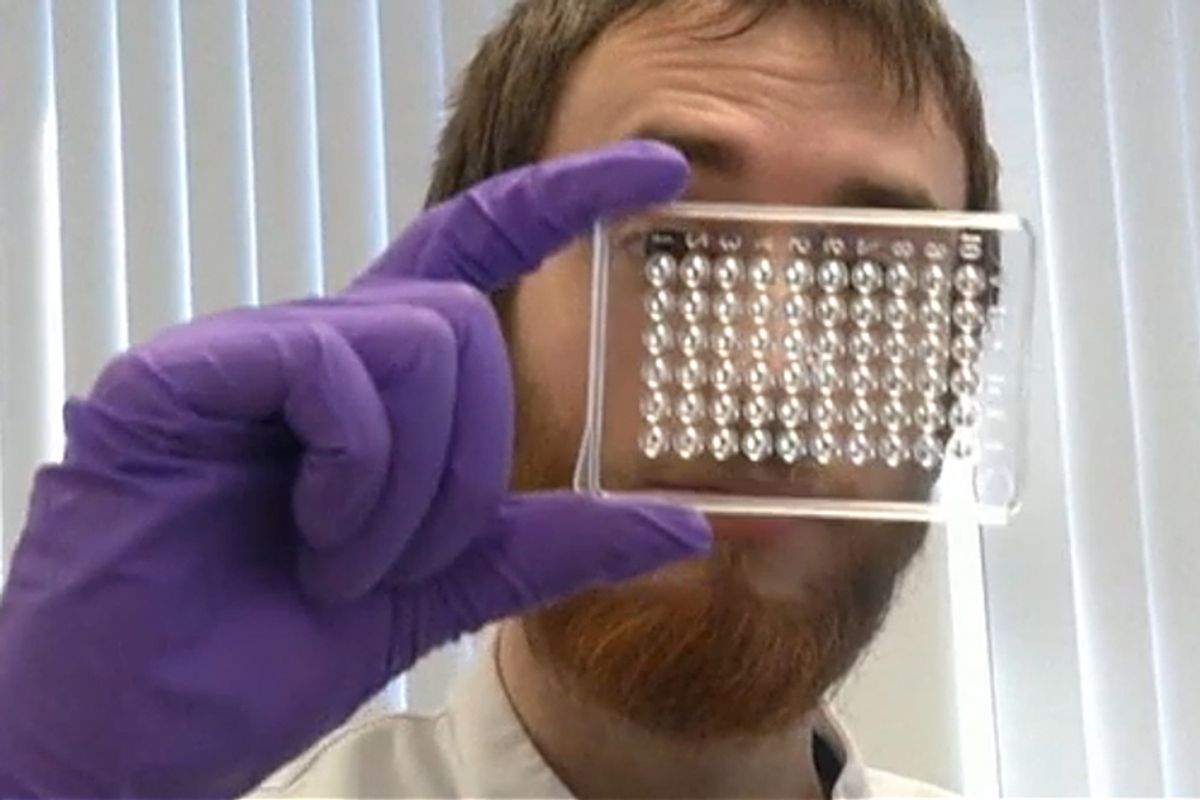3–D printers may revolutionize the way we make things, but they'll never be capable of producing everything. While the most expensive, advanced machines might be able to print in full–color or in different materials, they can't do other basic machining tasks like etching or milling. So, while the 3–D printing revolution may let us make things like shower heads and Pierogi molds at home, more ambitious makers will still have to head to a workshop.
Now comes the MicroFactory, being touted as "a machine shop in a box" by its creators, who were inspired to create a multi–tool kit after collaborating at the Boston–area maker space Artisans Asylum. The machine can 3–D print in four colors and multiple materials, etch, and mill. It's what they call "hybrid manufacturing." Co–founder Jeremy Fryer–Biggs explains: "I wanted to have a machine that was capable of making parts for all the crazy stuff people people would ask me [to make]. I wanted a tool that would allow me to do a whole wide range of things."
The micro–factory dramatically expands the range of products a person with no other equipment could make. Fryer–Briggs uses the example of a bagel slicer. He would've needed three or four machines to make the components in the past, but he could now do most of that using the Micro–Factory.
Fryer–Biggs imagines the machine, which contains a fully functional computer, being used to create parts in extreme scenarios where no stores are available. "You're at base camp in the Himalayas, you're in the middle of Afghanistan and you wanna make a part," he envisions. "So you connect this thing to a Wi–Fi hotspot––if you have a Wi–Fi card in the machine that you put in. You can then download from the server whatever the replacement part is you need, and in the middle of nowhere, get your replacement."
The team currently has several working prototypes but is planning to bring the project to market by raising $1 million of Kickstarter. MicroFactory units are being pre–sold between $4,000 and $10,000 in several models. The team admits that it's pricey, but says it's worth it. "The science fiction future is officially here," says Marie Staver, a project manager on the team.

Shares